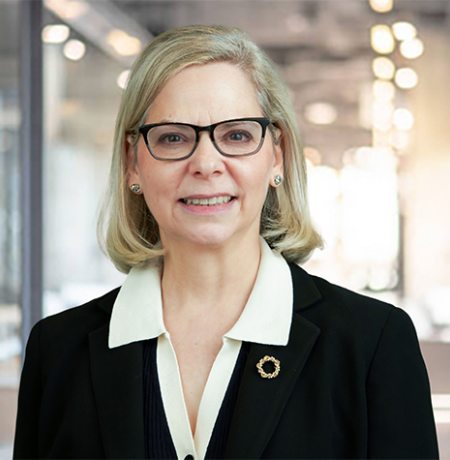
Eight years ago, on the day that I would normally have been addressing the audience at Kaufman Hall’s annual Healthcare Leadership Conference as part of the rating agency panel, I was being warmly welcomed in a very different place. I was not in the Four Seasons ballroom, but in the infusion suite at one of the large academic medical centers in New York City, for my first chemotherapy session.
One month prior I received a shocking diagnosis. In the time it takes to say, Lisa, you have breast cancer, I went from hospital analyst to hospital patient. The irony of 20 years of standing in judgment of the hospital industry, and now at its very mercy to save me, was not lost on me.
I decided that there was only one way to get through the year in front of me: as an analyst.
My mission: analyze now, cry later.
My strategy: turn off the internet; it was disruptive. Instead, I went to every consultation and appointment armed with pen, paper, and two pages of questions—would you expect anything less from me? I wanted to understand the biology of my disease, the chemistry of the chemo drugs, the physics behind the radiation. I wanted data, I wanted survival rates, I wanted percentages of recurrence. And when I could absorb no more, I held up my pen in surrender and my husband took over.
All the hospitals in New York City, where I lived at the time and still live, are clinically excellent. With no exclusive payer contracts, I had my pick. I put ratings, spreadsheets, and balance sheets aside. And I chose the hospital where I felt a connection to the surgeon.
I met with two top-notch surgeons—one was world renown, gave me 30 minutes, and told me, when I was allowed to ask a question, that I would not see her post surgery. I would be handed off to oncology. The other surgeon, who was not world renown but had an excellent pedigree, spent two hours with me, answering and re-answering my questions, and told me that not only would I see her after surgery, but she and the team and the hospital would stick with me for the rest of my life.
The choice was clear.
I also decided to leverage my illness as a way to personally evaluate firsthand the patient experience. I decided I would hold a rating committee with one voting member: me, your toughest critic. On deck: every mission statement, value statement, user-friendly, patient-centric, and patient engagement strategy that you have ever explained to me. And I have paid attention. The rating committee would span the entire year of my treatment.
In the meantime, I think I laid on, sat on, rode on, and was hooked up to nearly every piece of oncological equipment a hospital has ever bonded for, as I made my way through the brutality of the treatments. I know that many of you reading this know what I am talking about or have family members or friends who know what I am talking about. It was debilitating. But I had faith in the science and faith in the faith.
So how would I rate my hospital experience? Well, it wasn’t perfect. There were a few scheduling snafus. Some lab results took too long to get. I couldn’t get MyChart to work—although truthfully my hands hurt so badly from the chemo that I gave up after a few minutes. On my first day of radiation I got lost in the bowels of the hospital looking for the radiation unit, although truthfully in my mind’s eye I think I saw the sign but just kept on walking.
It would be irresponsible and odious for me to fit the bond rating scale into my hospital experience. So instead, I found two words to describe it. It was simply outstanding. In this behemoth, urban, busy, gritty, unionized, teaching institution, the care was compassionate; the people warm, engaging, and empathetic. The doctors, nurses, technicians, receptionists embraced me and my family. It wasn’t that the chemo nurse got the needle in the first time, every time. It was that she and the others engaged and empowered me to take control of a situation where I had no control. I was looking for a hospital that would metaphorically hold my hand through this nightmare and I found one that literally did.
For many years, I have represented myself as an expert in not-for-profit healthcare. And maybe when it comes to analyzing this industry through the lens of a bond rating, I am. But it was only after my experience as a cancer patient that I truly understood the not-for-profit healthcare mission, and I am truly grateful.







